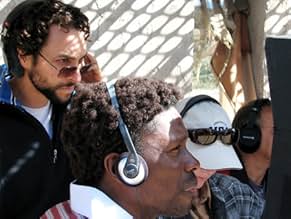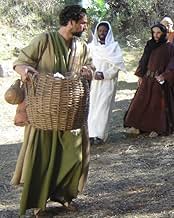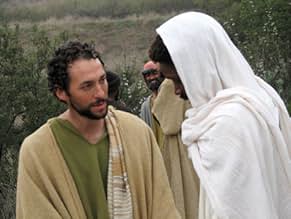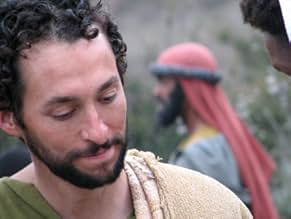I had never heard of this and its sequel before the proprietor/friend of the DVD store I frequent mentioned them to me; being a radical and potentially controversial take on Christ's passion and death (nothing less would do after Mel Gibson's THE PASSION OF THE Christ {2004} I guess!), I opted to check them out over this Easter season.
However, I was not impressed: of course, the first two things that are immediately evident is that the protagonist's name has been given its 'correct' Jewish pronunciation of Yeshua (but, then, so did the notorious THE PASSOVER PLOT 30 years previously!) and that he is black (again, this was hardly new: BLACK Jesus {1968} and BROTHER JOHN {1971} – both of which I will be checking out presently – had depicted him as such too...though, admittedly, the events were usually approached in allegorical terms). Incidentally, this is the first time the actor playing Christ has also directed himself(!) – and still, one other novelty here is that Arimathea (pronounced here "Aramithea"!) has become the location where the narrative unfolds!
Anyway, the film presents the familiar story of intolerance, betrayal and sacrifice, with most of the famous characters intact and then some: in fact, here Mary and Joseph (Jesus' parents) are shown as having had other children as well, and they are all affected – in different ways – by his plight. Curiously enough, the film skimps entirely on Christ's trials – jumping from his arrest in Gethsemane (where Jesus' sudden and unwarranted over-emoting is quite jarring, by the way!) to the predictably bloody crucifixion on Golgotha: that said, the version I watched was about 20 minutes shorter than the official running-time of 108 (which, for all I know, may account for this 'missing' segment)!
The film's lack of a reputation suggests that it made no significant ripples when it emerged: the thoroughly amateurish production and deliberately realistic yet low-key nature may equally have had something to do with this.
























